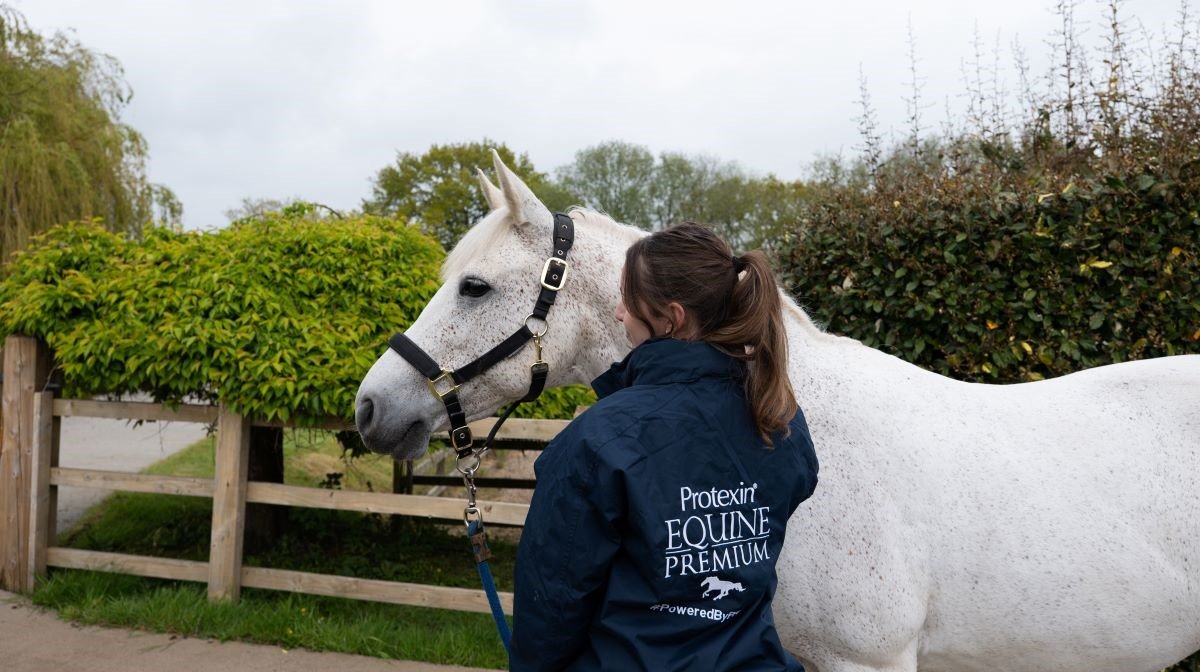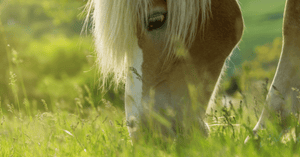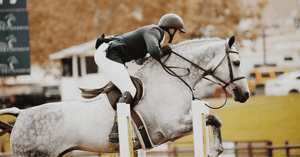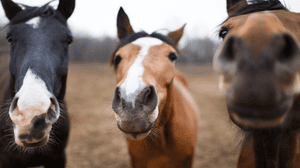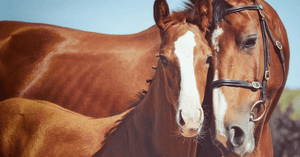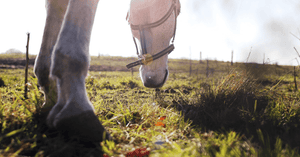
Owning your first horse is an undeniably exciting prospect, promising a fulfilling experience, incredible companionship and the joy of riding. Becoming a successful and responsible horse owner, however, does require a lot of time, expense and effort, so it's essential to plan ahead.
We have listed below 15 tips to ensure a positive experience for you and your new horse or pony, focusing on grooming, food, health, training and building relationships within your equine community.
Be prepared for your horse's basic needs
Have a financial backup plan (sometimes emergencies happen!)
Plan and maintain a grooming routine
Bring someone more experienced to meet your horse
Observe how your horse behaves when being led around, groomed or tacked up
Know the horse's history
Have an experienced vet ready
Keep your horse active
Consider insurance
Have an equine first aid kit
Minimise horse boredom so they don't develop bad habits
Form relationships with other horse owners
Consider the climate where your horse will live
Have the right equipment
Keep your horse's gut healthy
1. Be prepared for your horse’s basic needs
Ensuring your horse's wellbeing starts with meeting their fundamental needs - adequate food and water. A horse's nutritional requirements depend on their age, weight, and how much activity they do, so make sure you have all this information ahead of time. Horses typically require 1.5 to 2.5% of their body weight in forage (hay or pasture) daily. This provides essential fibre for their digestive system and helps prevent colic. Additionally, horses should have clean, fresh water available at all times, with an average daily intake of 20 - 55 litres. Consult with your vet to understand your horse's individual needs and create a balanced feeding plan for them. Your horse should also have the other basic needs met, such as freedom from discomfort, pain or injury, freedom to express natural behaviours, and freedom from fear or distress.
2. Have a backup plan in case of emergencies
Owning a horse means unexpected costs, especially when emergencies arise. It's highly recommended to have a backup plan to address unforeseen veterinary bills or unexpected situations. Creating an emergency fund can provide peace of mind and ensure that your horse receives the care they need if anything goes wrong. For more information, discover our horse cost guide that might help you.
3. Plan and maintain a grooming routine
Regular grooming plays a vital role in your horse's health and wellbeing whilst helping to strengthen the bond between the horse and owner. Most horses will require a weekly grooming session, or more depending on their turnout and weather conditions. Invest in quality kit for grooming your horse, including brushes and hoof picks and tailor the routine based on your horse's coat type and activity level (and how much mud they are covered in!).
4. Bring someone more experienced
When going to view a horse for the first time, bringing a knowledgeable person with previous experience is a great idea. They can give you valuable insight into the horse's behaviour, offer guidance on handling, and advise you if there’s anything additional you should to consider before making the purchase. This mentor can also assist in assessing the horse's body language, temperament, and overall health.
5. Observe how your horse behaves when being led around, groomed or tacked up
Observing your horse during daily activities such as leading, grooming, and tacking up provides valuable insights into their temperament and overall health. You should also pay attention to any signs of discomfort or stress-indicative behaviour, such as pinned ears, tail swishing, or them being resistant. This observation helps you understand your horse's preferences and understand any potential issues requiring attention from a trainer or vet.
6. Know the horse's history
Understanding your horse's history makes effective care and training much easier. Find as much information as you can about their previous owners, training methods, and any past injuries or health issues. This knowledge allows you to tailor your approach, avoiding situations that may cause stress or discomfort for your horse.
7. Have a vet ready
Before you meet your horse, be ready to introduce them to a veterinarian. Regular check-ups, UK horse vaccinations, and timely medical interventions contribute to your horse's overall well-being and longevity. Most vets will offer customised health plans, including vaccination schedules, dental care, and preventative measures against common equine diseases.
8. Keep your horse active
Regular exercise is very important for a horse's physical and mental health. Create a regular exercise routine that includes riding, groundwork and turnout. This not only keeps your horse fit but also helps prevent boredom and unpredictable behaviour. Consult with a professional trainer to develop a suitable training programme based on your horse's age, fitness level, and intended activities.
9. Consider insurance
Taking out equine insurance safeguards against unexpected medical expenses or liability issues. Insurance policies tailored for horses can provide financial support in case of accidents, injuries, or health-related issues. Horse insurers offer different coverage options, including mortality insurance, medical coverage, and liability insurance, to ensure comprehensive protection for your horse and yourself.
10. Have an equine first aid kit
Be prepared for minor injuries by assembling an equine first aid kit that includes essential items such as bandages, antiseptic ointment, thermometer and contact information for your vet. It's also worth familiarising yourself with basic first aid procedures, especially dressing a wound and applying poultices to feet. Discover more about equine first aid in general from our helpful guide!
11. Minimise horse boredom
Horses are highly intelligent creatures and can easily become bored if not mentally stimulated. Keep your horse occupied by creating an interesting environment and a variety of activities for them. Plenty of social interactions between them and owners, or them and other horses, will also prevent boredom, and potentially lead to fewer undesirable behaviours. Rotate pasture access, incorporate toys such as balls and cones and engage in diverse training exercises to keep your horse mentally and physically engaged.
12. Form relationships with other horse owners
When your horse is kept at a yard, you will have the opportunity to meet other horse owners. Getting to know the other liveries means there will be a supportive community that can share invaluable experiences, knowledge, and resources. You should collaborate on responsibilities, such as turnout schedules or emergency assistance, creating a network that can offer guidance and assistance when you need it.
13. Consider the climate where your horse will live
Make sure that you have suitable gear to keep your horse comfortable, appropriate to the climate where they are living. Invest in rugs for when they are in a stable and when they are turned out to ensure your horse is protected from the elements and maintains a healthy body temperature throughout the year. A pony that doesn’t need a field rug in the winter may need a fly sheet in the summer - your trainer, vet or yard members will be able to advise on which types of rugs would be best suited for your animal.
14. Have the right equipment
Ensure that the saddle, bridle, and other tack fit properly to prevent discomfort. Regularly inspect, clean and maintain your tack and other equipment, addressing any wear or damage promptly. If you’re unsure on the tack you have or are using, consult with fellow livery or your trainer ensure you have the right gear for your specific discipline and your horse's needs.
15: Keep your horse's gut healthy
Provide a balanced diet, access to fresh forage, and have a regular worming programme to support the best possible gut health. Your vet will develop a worming schedule tailored to your horse's age, lifestyle, and local parasite prevalence. Additionally, look after your horse's teeth through regular dental check-ups and appropriate dental care practices.
Essential horse gut health supplements are hugely beneficial for maintaining a healthy digestive system. Make these part of your horse's feed routine to avoid digestive discomfort and stomach problems.

